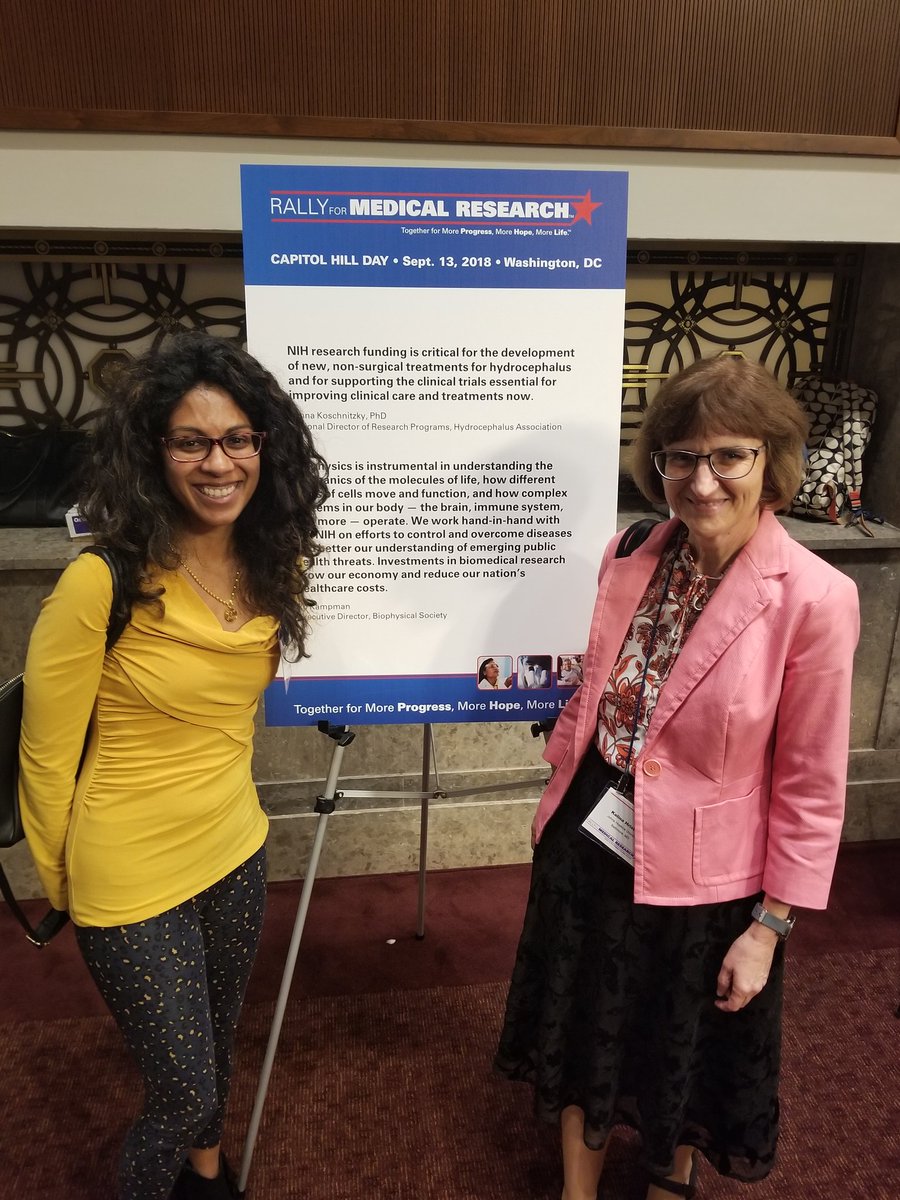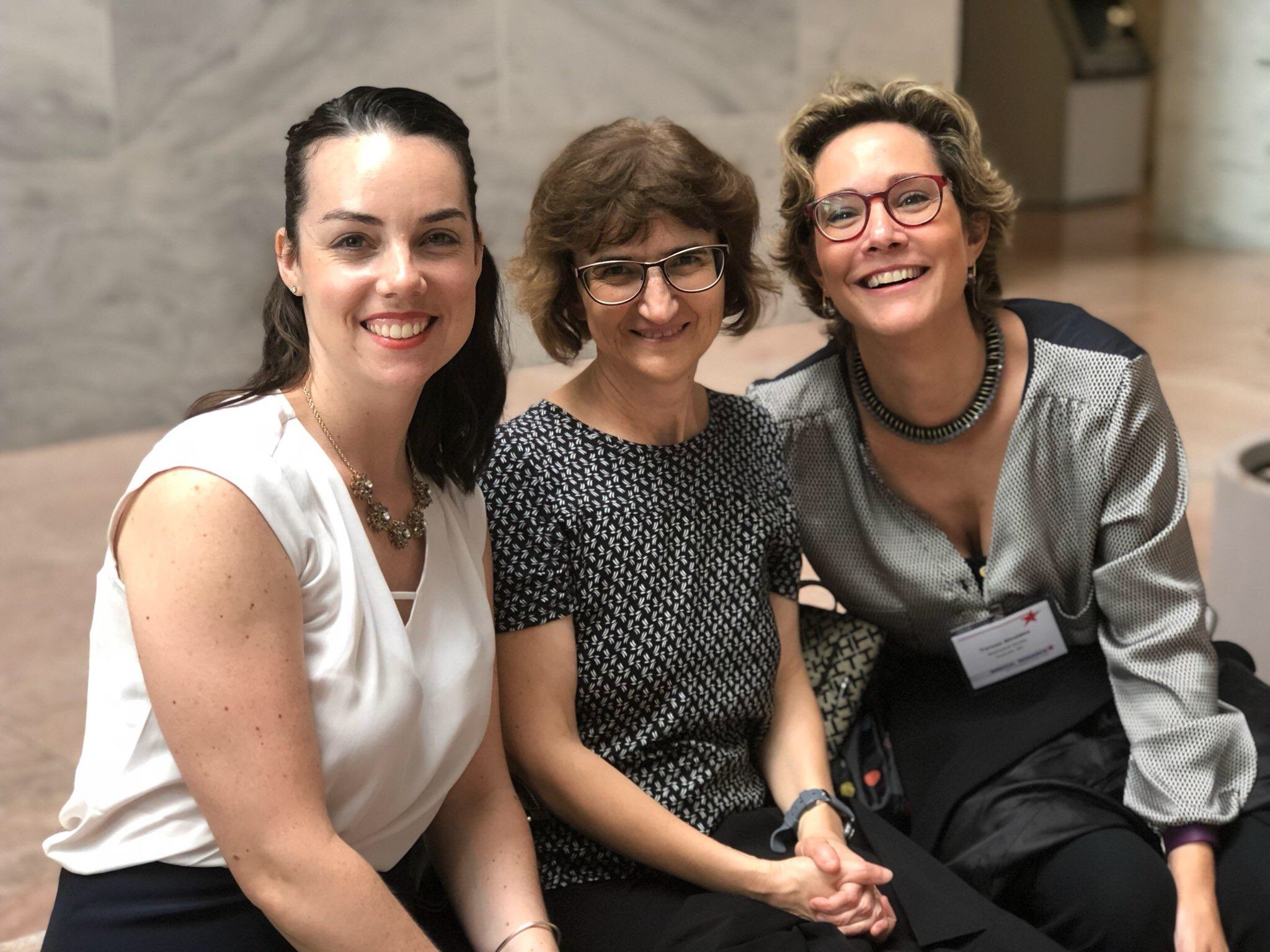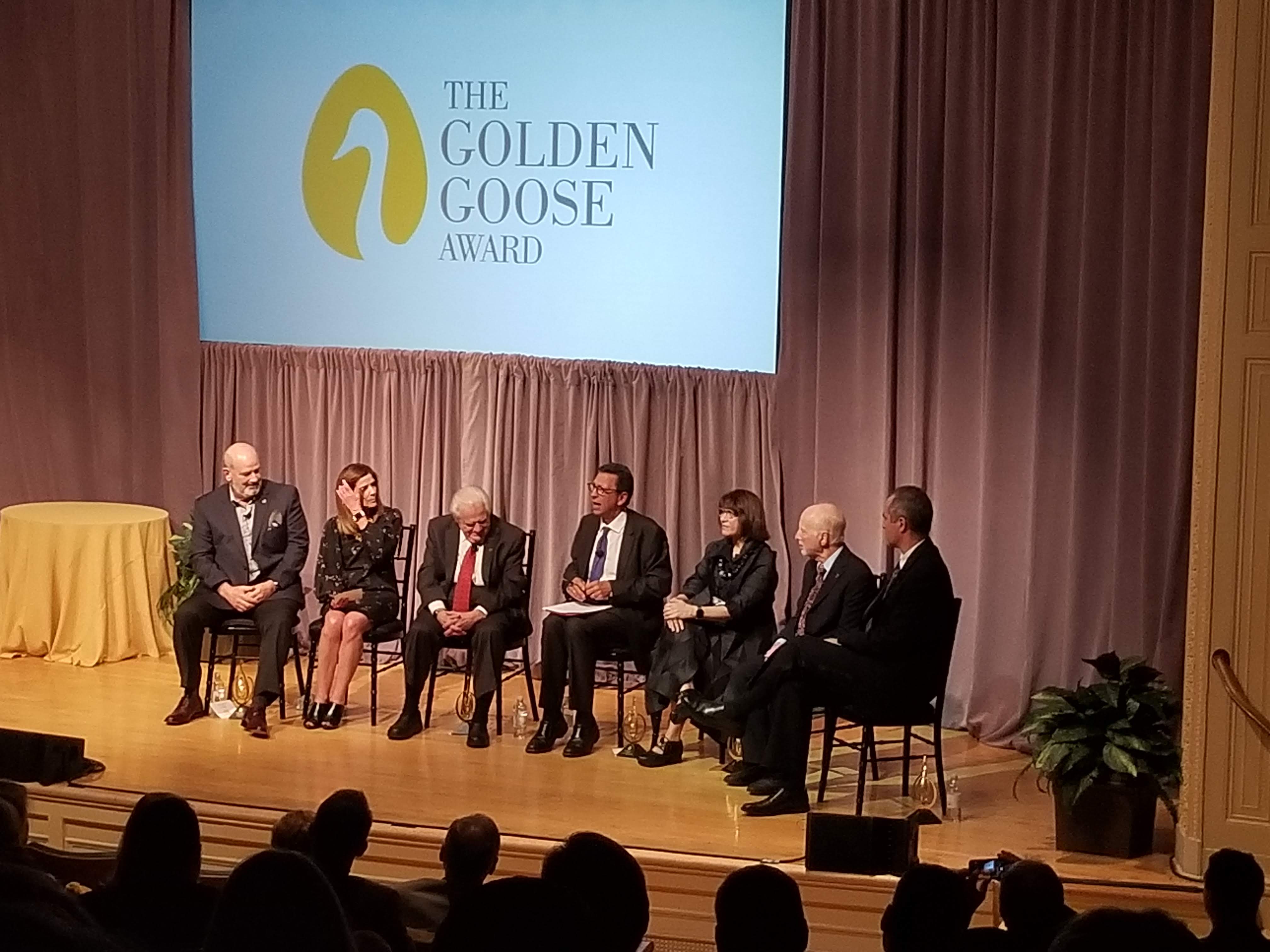The Biophysical Society is a proud sponsor of the Rally for Medical Research, an annual event in which physicians, scientists, and patients travel to Capitol Hill to advocate for NIH funding, and of the Golden Goose Awards, which honor "silly-sounding" federally funded research that has made an impact on society. Last month, BPS members participated in the Rally and the award ceremony, and offer summaries of their experiences below.
Rally for Medical Research
By Vidhya Sivakumaran, PhD, BPS Public Affairs Committee

The Rally for Medical Research, initiated in 2013 by the American Association for Cancer Research, is held every September and continues to gain momentum, bringing together more than 300 national organizations in support of procuring funding for the National Institutes of Health (NIH). This coalition included physicians, scientists, and patients coming together to lobby for robust, sustained, and predictable funding for the NIH by increasing the current budget by another 2 billion dollars for fiscal year 2019.
For the second year in a row, I had the opportunity to attend the Rally on behalf of the Biophysical Society and share my story as a former medical research scientist. This year’s event was a little different than last year’s. This year we were coming into Congressional and Senate offices after the Senate had already passed a bill for a $2 billion increase, so we were really asking the House of Representatives to include the Senate-passed funding level of $39.1 billion for NIH in the final fiscal year 2019 appropriations bill.
I went to the Rally to lobby for the scientist, for the future of medical research, and to discuss what happens to the early career researcher when there isn’t enough funding available for them to continue. As a former medical researcher, I watched the struggle of many labs as they toiled through the years of sequestration and how that has led to many leaving the field. While meeting with Senate and Congressional offices, I was able to relay to key policymakers how NIH funding affects not only the medical research, but also the scientists. Without funding, researchers will leave the field and look for reliable forms of employment in the private sector, which in turn leads to fewer medical advancements.
The stories of the many scientists, patients, and physicians who attended the Rally will hopefully show our Senators and Congressmen how important research is to our futures.
Golden Goose Awards
By Leah Cairns, PhD Candidate, Johns Hopkins University School of Medicine
 The Biophysical Society was once again a sponsor of the Golden Goose Awards, which recognizes federally funded, silly sounding research that has made an impact on our society. Several members of BPS who were in Washington, D.C. for the Rally for Medical Research were in attendance at the award reception.
The Biophysical Society was once again a sponsor of the Golden Goose Awards, which recognizes federally funded, silly sounding research that has made an impact on our society. Several members of BPS who were in Washington, D.C. for the Rally for Medical Research were in attendance at the award reception.
Three research teams were recognized at the ceremony:
First, the late Dr. Bruce Glick was recognized for his discovery of the role of the Bursa of Fabricius, an organ in chickens, in antibody production. His early discoveries paved the way for breakthroughs in understanding immune deficiencies and improvements cancer treatments. Bruce’s children were present to accept the award on his behalf, and they told heartwarming stories of his passion for discovery-based science and for mentoring the next generation of scientists.
Next, Dr. Mahzarin Banaji, Dr. Anthony Greenwald, and Dr. Brian Nosek were recognized for their work on implicit bias. This team devised the Implicit Association Test, a simple tool that can reveal biases that the user may not even be aware of. The test is freely available online, and over twenty million people have taken it. In addition, organizations such as police forces and corporate offices have used the test as a training exercise for employees. The test also holds promise in unexpected applications in predicting and preventing harmful behaviors such as excessive drinking and suicides.
 Lastly, Dr. Stanley Cohen was recognized for his discovery of cytokines. Dr. Cohen’s discovery stemmed from a failed hypothesis when he was looking into immune responses carried out by lymphocytes. Instead of throwing his first experiment in the trash, Dr. Cohen looked more carefully at what was happening. This early research led to new therapies for cancer, autoimmune diseases, and inflammatory diseases. In true spirit of the Golden Goose Awards, Dr. Cohen cited his initial funding from the NIH for basic research as being essential for his fortuitous discovery.
Lastly, Dr. Stanley Cohen was recognized for his discovery of cytokines. Dr. Cohen’s discovery stemmed from a failed hypothesis when he was looking into immune responses carried out by lymphocytes. Instead of throwing his first experiment in the trash, Dr. Cohen looked more carefully at what was happening. This early research led to new therapies for cancer, autoimmune diseases, and inflammatory diseases. In true spirit of the Golden Goose Awards, Dr. Cohen cited his initial funding from the NIH for basic research as being essential for his fortuitous discovery.
The Golden Goose Award Documentary, which was presented at the Awards Ceremony, can be viewed on the Golden Goose website.